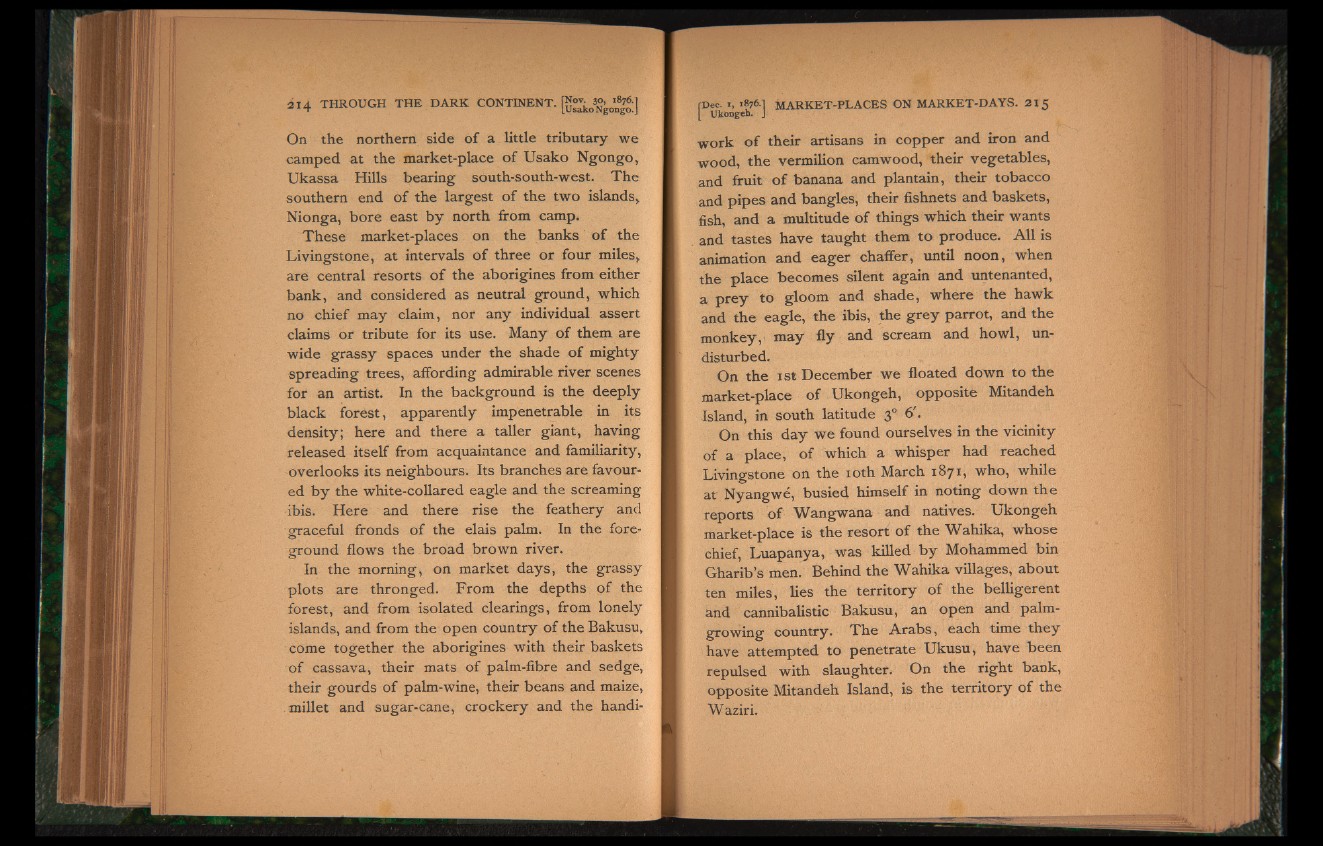
On the northern side of a little tributary we
camped at the market-place of Usako Ngongo,
Ukassa Hills bearing south-south-west. The
southern end of the largest of the two islands,
Nionga, bore east by north from camp.
These market-places on the banks of the
Livingstone, at intervals of three or four miles,
are central resorts of the aborigines from either
bank, and considered as neutral ground, which
no chief may claim, nor any individual assert
claims or tribute for its use. Many of them are
wide grassy spaces under the shade of mighty
spreading trees, affording admirable river scenes
for an artist. In the background is the deeply
black forest, apparently impenetrable in its
density; here and there a taller giant, having
released itself from acquaintance and familiarity,
overlooks its neighbours. Its branches are favoured
by the white-collared eagle and the screaming
ibis. Here and there rise the feathery and
graceful fronds of the elais palm. In the foreground
flows the broad brown river.
In the morning, on market days, the grassy
plots are thronged. From the depths of the
forest, and from isolated clearings, from lonely
islands, and from the open country of the Bakusu,
come together the aborigines with their baskets
of cassava, their mats of palm-fibre and sedge,
their gourds of palm-wine, their beans and maize,
millet and sugar-cane, crockery and the handirDec.
i, 1876.1 MARKET-PLACES ON MARKET-DAYS. 215
[ Ukongeh. J
work of their artisans in copper and iron and
wood, the vermilion camwood, their vegetables,
and fruit of banana and plantain, their tobacco
and pipes and bangles, their fishnets and baskets,
fish, and a multitude of things which their wants
and tastes have taught them to produce. All is
a n im a t i o n and eager chaffer, until noon, when
the place becomes silent again and untenanted,
a prey to gloom and shade, where the hawk
and the eagle, the ibis, the grey parrot, and the
monkey,i may fly and scream and howl, undisturbed.
On the 1 st December we floated down to the
market-place of Ukongeh, opposite Mitandeh
Island, in south latitude 30 6'.
On this day we found ourselves in the vicinity
of a place, of which a whisper had reached
Livingstone on the xoth March 1871, who, while
af Nyangwe, busied himself in noting down the
reports of Wangwana and natives. Ukongeh
market-place is the resort of the ^Vahika, whose
chief, Luapanya, was killed by Mohammed bin
Gharib’s men. Behind the Wahika villages, about
ten miles, lies the territory of the belligerent
and cannibalistic Bakusu, an open and palm-
growing country. The Arabs, each time they
have attempted to penetrate Ukusu, have been
repulsed with slaughter. On the right bank,
opposite Mitandeh Island, is the territory of the
Waziri.